
GIVE THIS RAMADAN

Sabuda Begum, 50, lives in Gobindapur, a village on the banks of the Ichamati River in Bangladesh. She lives with her husband and has three adult children, two daughters and a son. Their village is underwater for half of the year.
Gobindapur’s landscape is constantly changing as a result of climate change. Flash flooding, cyclones, and erosion have made it impossible to earn a living through crop cultivation. Local knowledge of farming techniques is dwindling and becoming obsolete as persistent waterlogging in the Ganges floodplain have driven farmers to look elsewhere for work. With no other options, Sabuda and her family have been forced to work low-paid jobs that involve heavy manual labor.
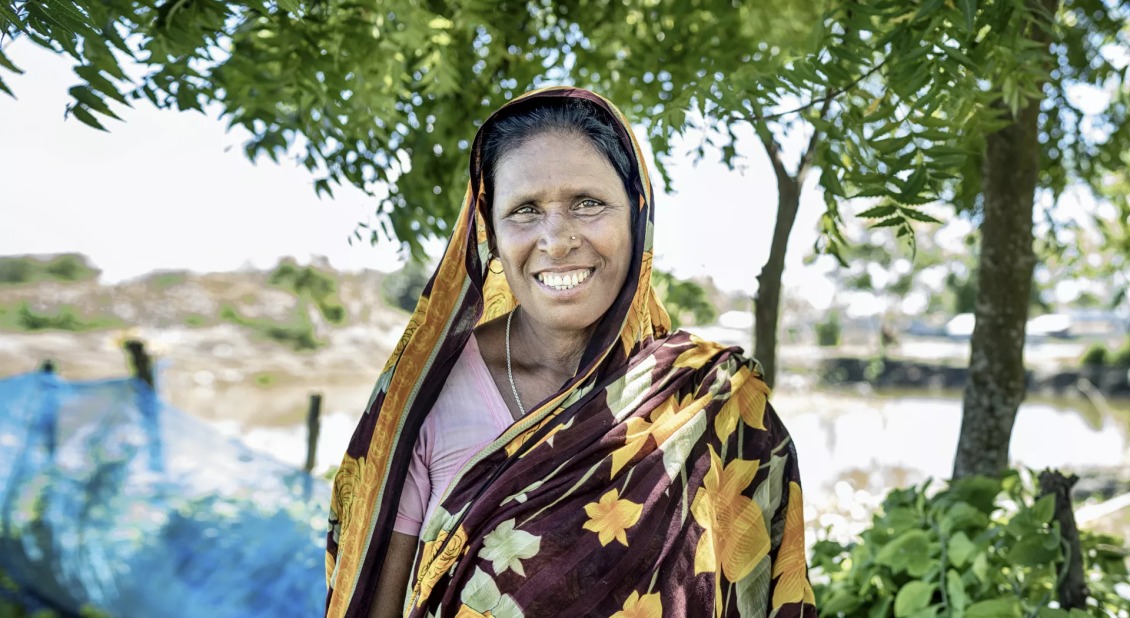
“We have experienced many disasters,” says Sabuda. “Cyclones, floods, and erosion have destroyed our home more than eleven times now. Every year, we spend three months with our land underwater, and it takes another three months to dry out and get back to everyday life. We are trying our best, fighting with nature and loss.”
Mosel, Sabuda’s husband, is in his mid-70s, and he has always worked hard to provide for their family. Still, they struggled. Sabuda also found work as a day laborer to earn additional income. The work was seasonal and often inconsistent.
“My husband got paid 250 Taka ($2) per day. I got 100 Taka (less than $1), because women always get less than men. We worked the same hours, did the same work, like digging the canal, working in the field, or working in the embankment. Our lives were miserable. I could not educate my children, because we had no money to support them after providing food.”
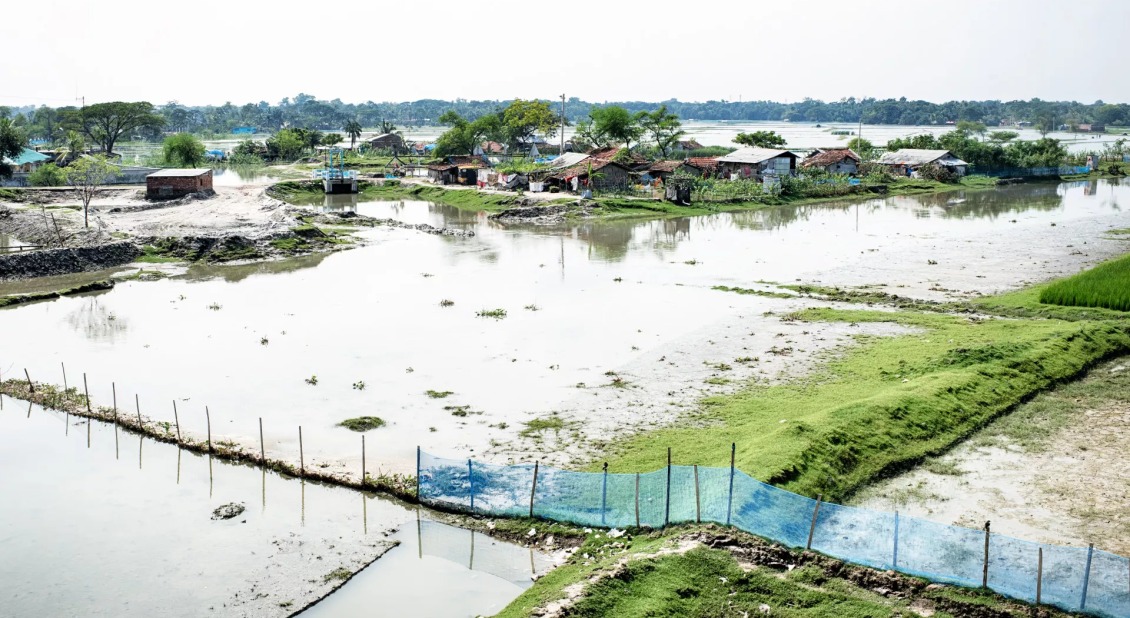
“We were deprived of nutritious food, and so we were suffering with health problems. We could hardly get rice and salt during the days when we had no work. We could not grow anything in our yard because we did not have any savings. We had no idea how to grow vegetables or raise livestock…I had no idea how we could change our lives.”
Action Against Hunger and the Soneva Foundation work together in Bangladesh to help communities like Sabuda’s adapt to climate change. We’re teaching families new skills and offering business training, as well as how to increase their food production at home by using climate resilient farming methods. This dual action plan ensures that families can access nutritious food either from their gardens or with their income.
Sabuda learned of Action Against Hunger’s project while she was digging a canal in their community. She and her husband both attended the training programs.
“We have learned how to grow vegetables in our yard, fishing, and have our cattle. In the beginning, we were afraid as it’s tough to grow crops or vegetables due to the constant rain and salinity of the water. But my husband encouraged me.”
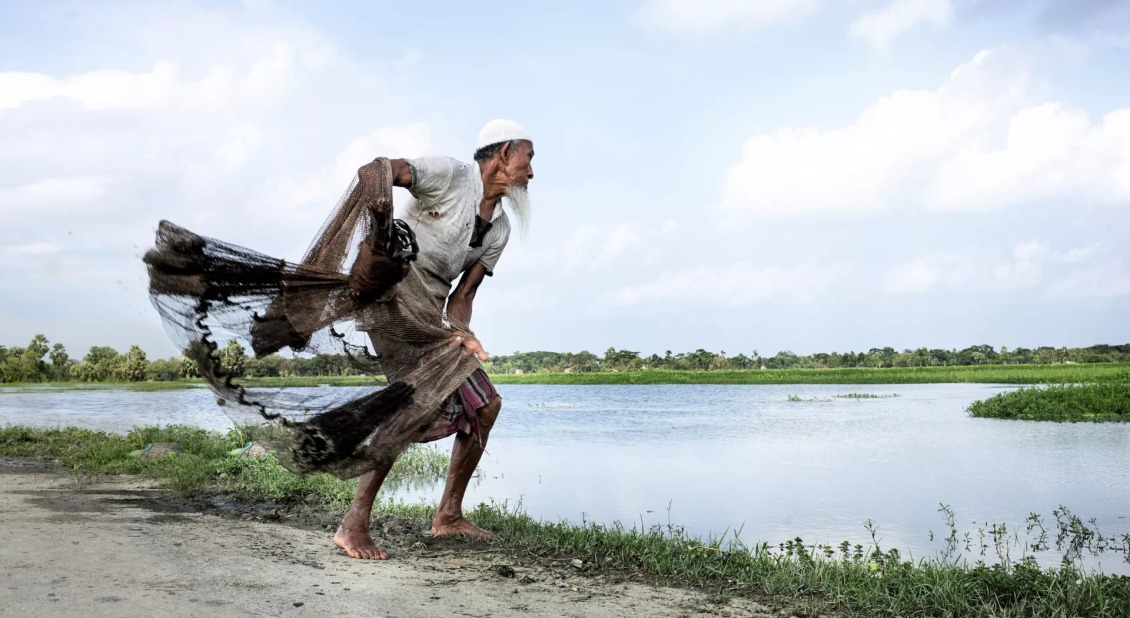
The family received 3,020 Taka ($35) to grow vegetables at home, as well as 13,020 ($150) to start a fish farm. They worked hard from dawn until dusk to make the most of the training and investment they received.
“Our entire family got involved in growing vegetables and working in the pond. With our constant effort, our vegetable garden grew bigger. After keeping some vegetables for our family, I sell vegetables to our neighbors.”
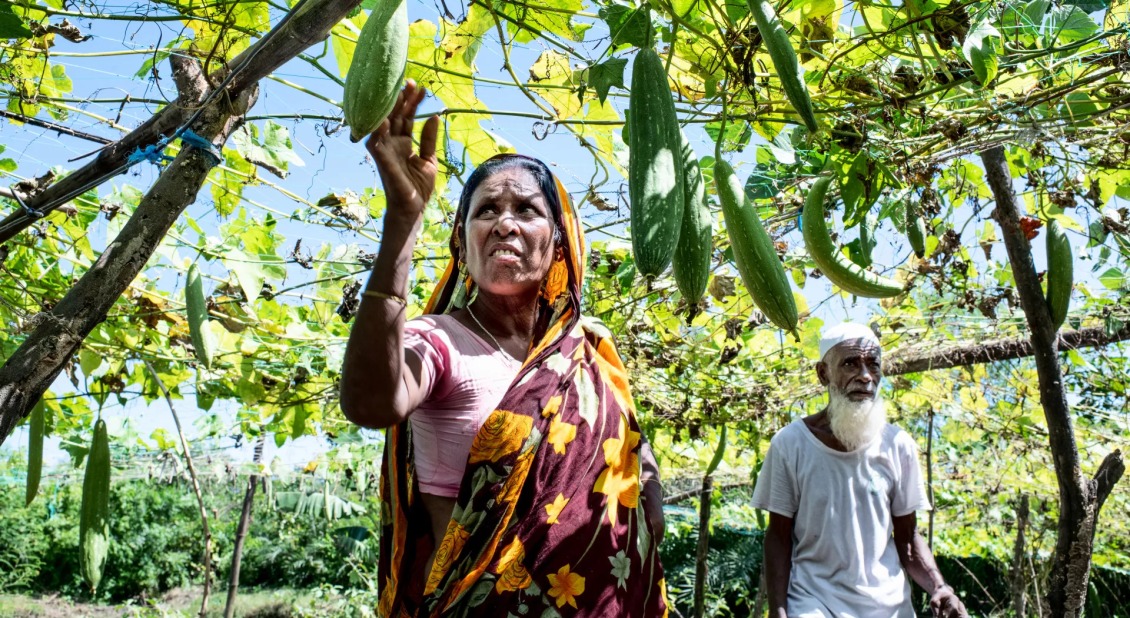
“We are now self-sufficient. It feels good to get fresh vegetables, and now we do not have to depend on others. My husband and I both work in our pond, vegetable garden, and make fishing nets.”
“My only son helps us in our pond. By selling fish, we saved enough to buy cattle. I have chicken and a cow. Our lives have transformed so much,” says Sabuda. Before, when her daughters would come home to visit, Sabuba could not afford to treat them well.
“Now, every time my daughters visit us with my grandchildren, I serve fish from our pond and cook vegetables. My grandson Mahfuz is six years old, he is going to school now, and we can provide for his education.”
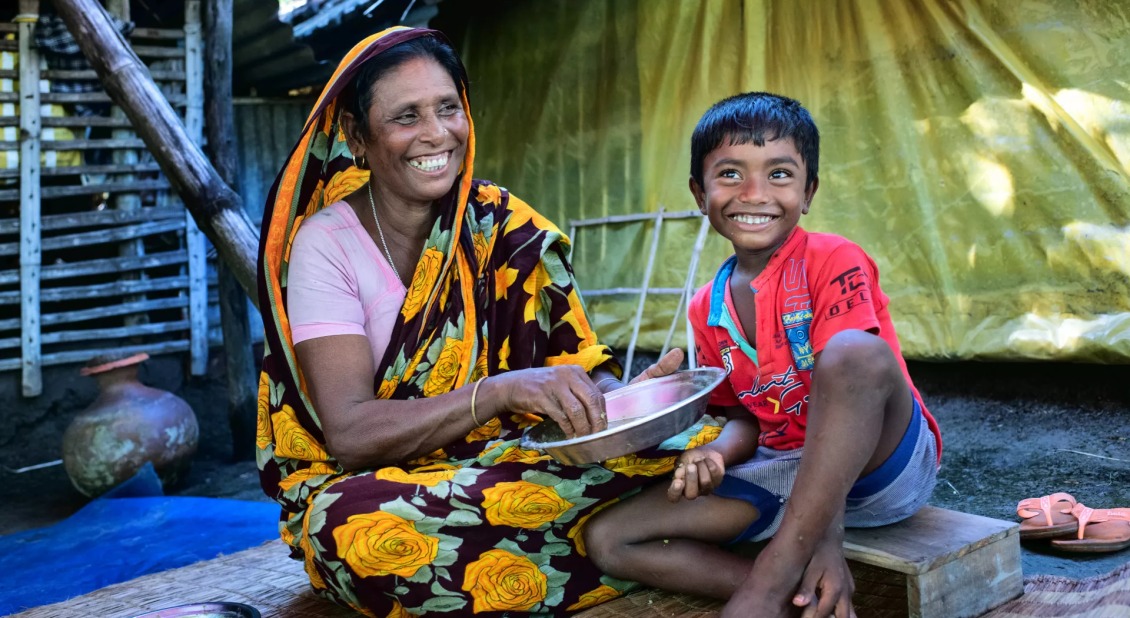
The families in the village who participate in the program formed a support and learning group, bringing the community even closer together.
“Every year we picnic together and share our joys and triumphs. We shared information and were encouraged to grow vegetables and crops. It feels satisfying to see how other families of my village are doing good like us and can provide for their minor children.”
Mosel’s health has improved, and Sabuba feels much better, too. They work hard, but the work is not as physically demanding as when they were day laborers, and they can take rests when they need to. Now, they are saving to build a new house.
“If we have not received this support, we have no idea what we could do with our lives. Despite all hardship, we have our vegetable garden, our fishing farm, we can provide for our family. Our life has been transformed.”
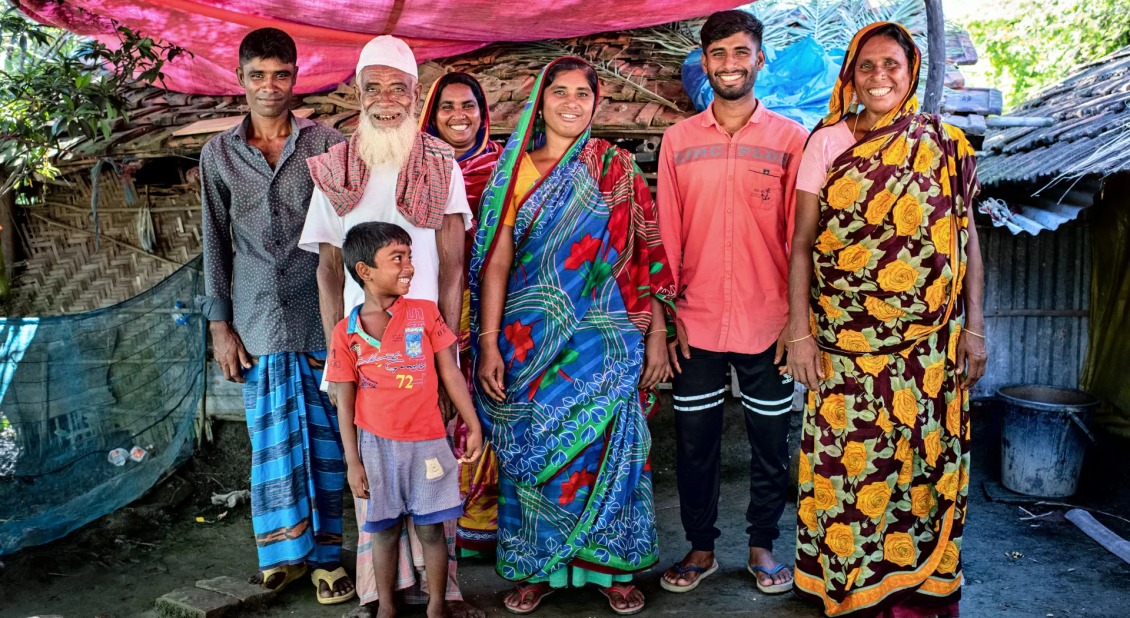
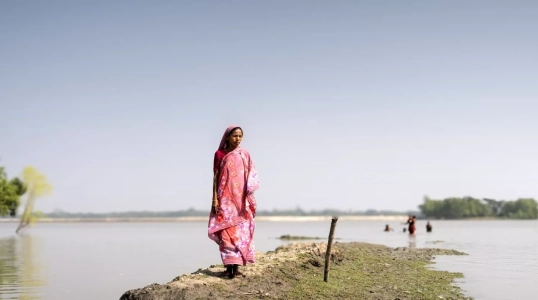
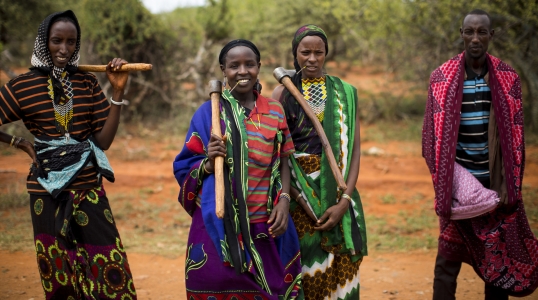
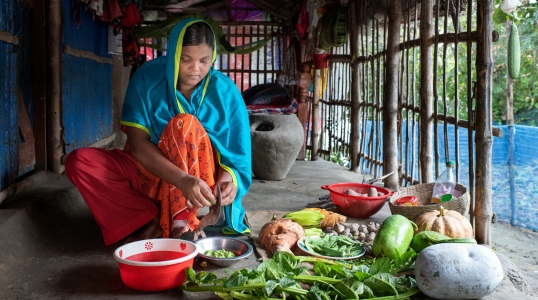
Join our community of supporters passionate about ending world hunger.